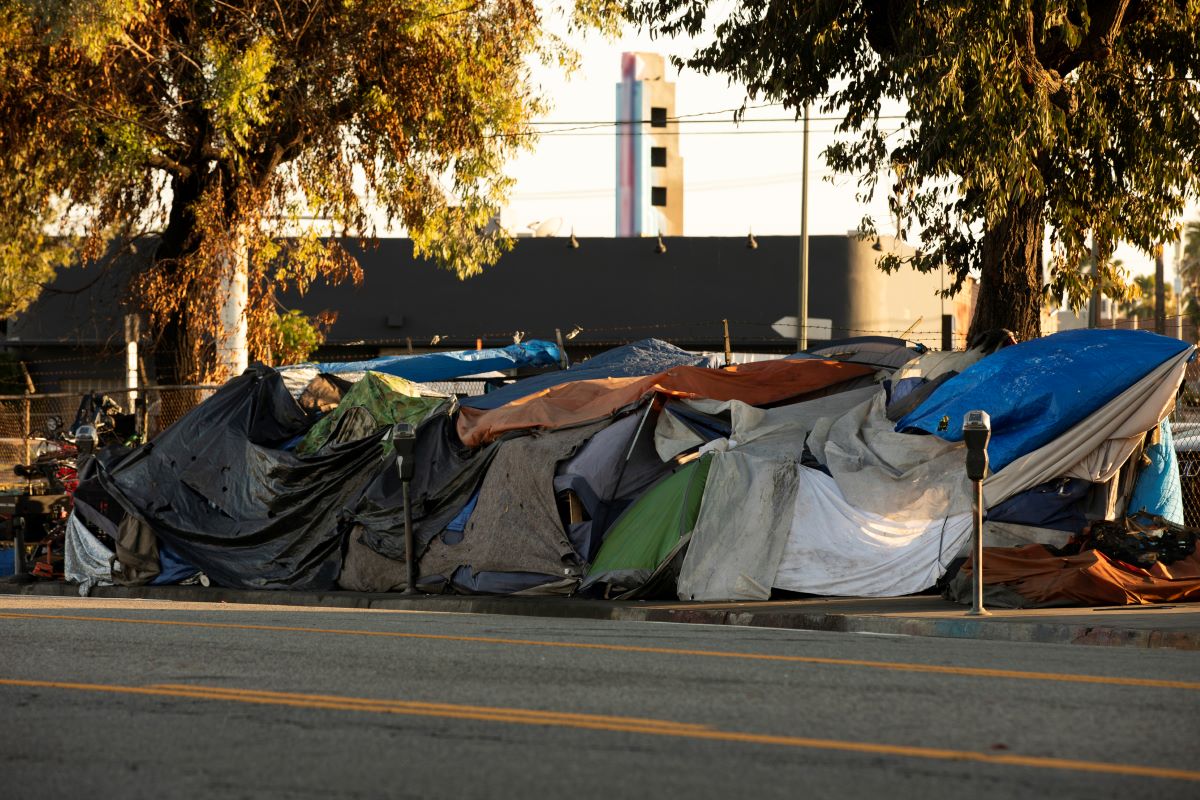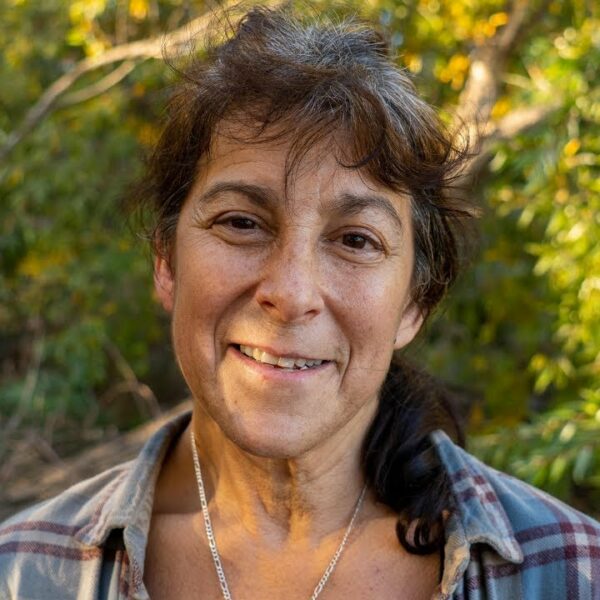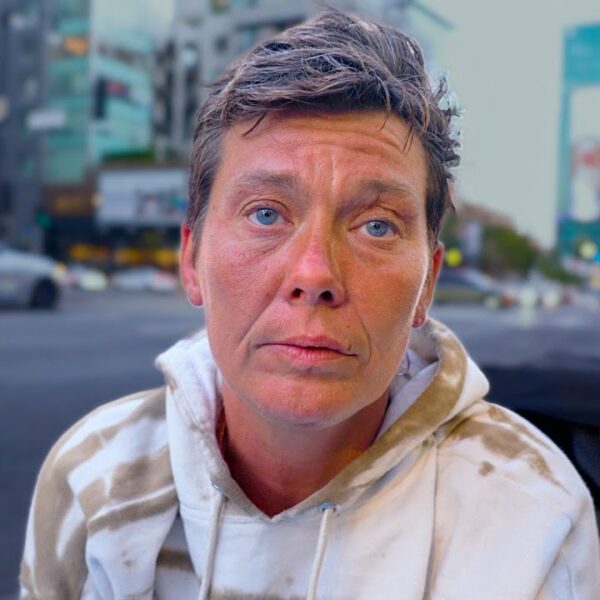Criminalizing Homelessness Via Sweeps Makes It Harder for Homeless People to Secure Permanent Housing
Some California leaders rallied outside the Ninth Circuit Court of Appeals on August 23 to demand the court overturn its ruling that cities can’t punish homeless people when there isn’t enough adequate shelter available.
The rally is the latest in a series of public campaigns to get the court to overturn its landmark ruling in Martin v. Boise. Previously, the ruling survived a challenge arising from Grants Pass, Oregon, where the court’s conservative judges said the decision was “egregiously wrong.”
San Francisco Mayor London Breed was one of the leaders in attendance and described the Martin v. Boise ruling as hamstringing her city’s ability to get homeless people off the streets.
“We are prepared, through our city attorney, to do whatever it takes for us to do our job,” Breed said. “It is not humane to let people live on our streets in tents.”
The rally also occurred on the same day California Gov. Gavin Newsom announced that the state would send $38 million to local governments to help them sweep homeless encampments. The money comes from Newsom’s $750 million encampment resolution fund.
San Joaquin County, Kern County, and the City of Thousand Oaks were three grant fund recipients. San Joaquin received $11 million to remove 300 people from encampments and connect about half of them with housing. Kern County received another $7 million to remove 100 people in encampments. Thousand Oaks got $6 million to remove 50 homeless people.
“As recent weather events have unfortunately demonstrated, living in encampments puts Californian’s lives in danger,” said Meghan Marshall, who leads California’s interagency council on homelessness. “These grants allow communities to move their most vulnerable residents to safe and stable housing, where they can be supported in addressing their unmet needs.”
Unsheltered Homelessness Is on the Rise Nationwide
Homelessness has become a much more visible issue in California and nationwide since the coronavirus pandemic began in March 2020. Since then, according to federal data, unsheltered homelessness has increased by 3.3% across the country, with more than 233,000 people sleeping outside as of January 2022.
The data shows that California accounted for half of that total, with more than 115,000 people living unsheltered, a 1.6% increase over the same period.
But counties like Los Angeles and San Bernadino have a different story, having seen their unsheltered homeless populations grow by 13% and 24%, respectively.
In turn, some cities increased their encampment sweeps under the guise of connecting homeless people with services. San Francisco is one city that increased its number of sweeps. Advocates with The Coalition on Homelessness responded by convincing the district court to issue a temporary injunction against the practice.
The Coalition has also sued to enforce the injunction more strongly after advocates accused the city of disobeying the court’s order.
On August 24, U.S. Magistrate Judge Donna Ryu ruled that the city was not technically violating the injunction but also asked the city to provide more information about whether it has destroyed the property of any unhoused people since the order was issued, local news station KQED reported.
“It’s likely there are [Department of Public Works] workers who bag and tag, but it also appears some are not. Some of the instances I called out are pretty clear and pretty blatant,” Ryu said, referring to San Francisco’s policy of bagging and tagging belongings of homeless people during sweeps so that they can be returned at a later time. “I have a concern that at least the training should be more robust.”
The Coalition’s court case against San Francisco is ongoing, as are the public pressures to overturn Martin.
How You Can Help
Many communities have laws that criminalize activities homeless people need to do in public to survive, including:
- Sitting or lying down
- Loitering or loafing
- Eating or sharing food
- Asking for money or panhandling
- Sleeping in cars and outside or camping
Not only is the cost of criminalizing homelessness high, but it does nothing to solve homelessness and violates human rights. Anti-homeless legislation leads to homeless people being arrested or fined, which makes it harder to find housing and jobs and access social services. Additionally, studies have found that sweeps are counterproductive and harmful to homeless people’s health.
Contact your legislators and demand they stop supporting legislation that criminalizes homelessness, like sweeps. Instead, they should support policies that invest in Housing First, a proven successful approach to solving homelessness.













